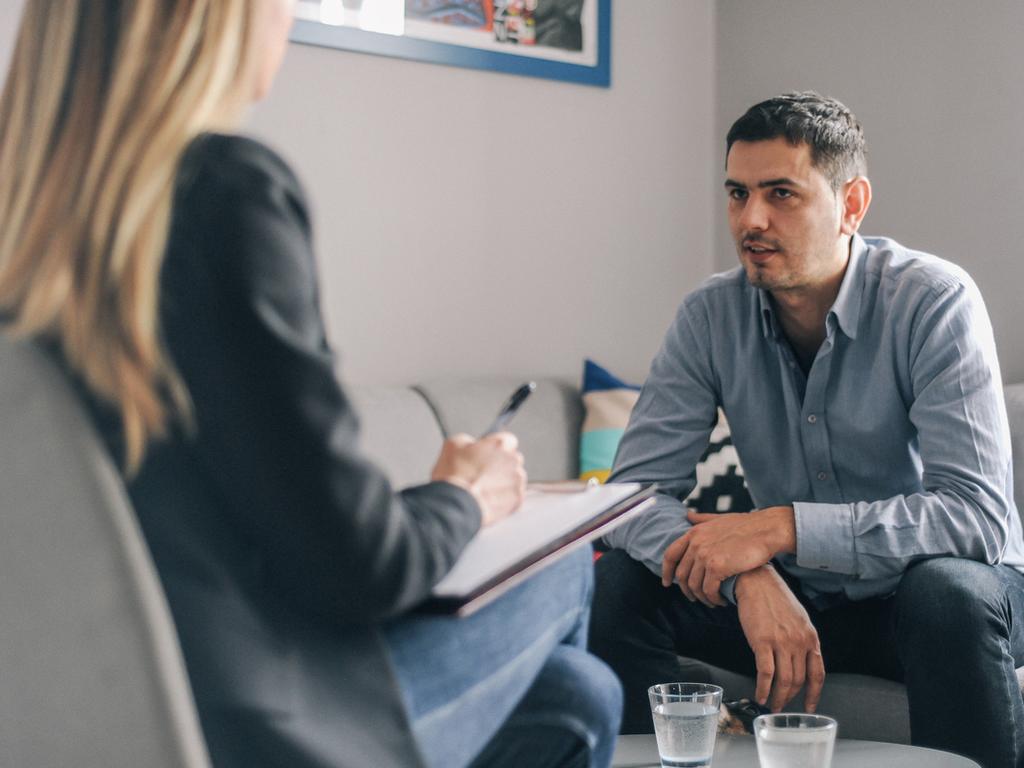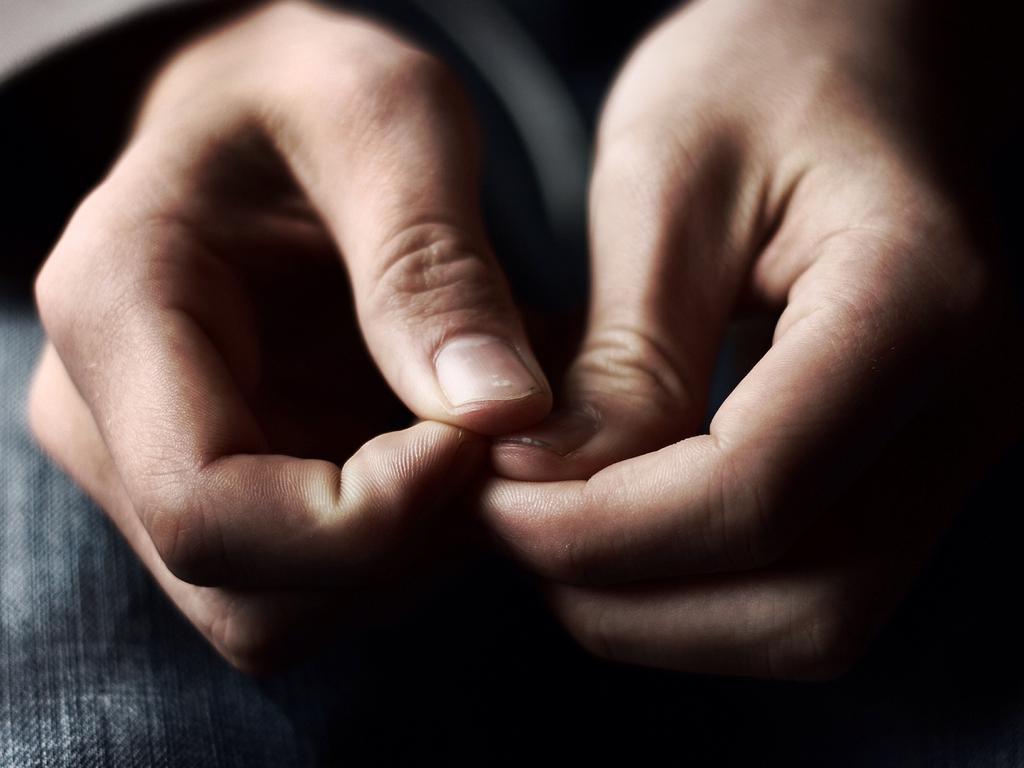Burnout symptoms: signs your work is making you sick
Corporate law is an industry known for being gruelling and stressful but when Claire’s mild cold turned into a chest infection, she knew something was wrong.
As a graduate lawyer, Claire* knew she had entered into a high-pressure, results-driven industry.
Working at one of Sydney’s top international law firms in 2019, the 25-year-old found herself struggling with the constant stress, frequent late nights and never-ending deadlines of her job.
“People wanted things urgently and you just had to do them. The work always seemed stressful and urgent because it was based on client demand and time pressures,” she says.
“You’re very switched on when you’re there and you were very tired when you weren’t. Even when it wasn’t bad, it was just where my energy went all day and every week.”
Although week nights spent working past midnight weren’t uncommon, it was having no control over her hours that was the most draining.
“The best way to describe it was that you needed a reason to leave. There was always more stuff to do. It was perfectly normal to be there till 7pm or 8pm and they’d serve dinner too.
“You’d see people calling their kids, wishing them a good night.”

By the six-month mark Claire realised something was wrong. The tiredness became constant and she stopped having energy for things she normally would, like hiking, spending time with friends and working on art commissions or drawing.
“That cyclical guilt was draining too,” she remembers. “You knew you’d feel better if you did those things but I was so tired it was hard to conceptualise how to fit it all in.
“For example midway through the week when someone asked what I was doing on the weekend, I would find that tiring because I couldn’t see past the next few days of work because I was so drained.”
CONFRONTING BURNOUT
Claire’s reactions to her stressful working environment are in-line with what psychologist at Sydney’s The Indigo Project Martha Tsakalos describes as burnout.
The issue is more prominent now than ever due to the pandemic. According to research from SEEK, the employment marketplace found that 56 per cent of us are now more aware of mental health due to COVID-19, while 45 per cent agree that the pandemic has impacted our mental health.
Speaking to news.com.au, Ms Tsakalos describes the condition as “a state of physical, mental and emotional exhaustion caused by excessive prolonged stress”. Symptoms associated with the condition can be characterised by three main criteria:
1. Physical and mental exhaustion
“[This can look like] feeling drained, physically fatigued or being emotionally exhausted as in not having the capacity or a reduced emotional bandwidth. Symptoms of stress and anxiety and depression are common too,” she says.
2. Cynicism and detachment
“It might be mild like not wanting to go to work or being eager to leave a situation or being more pessimistic and wanting to distance oneself from others. More broadly, this can also be feeling detached and disconnected from others, from your work, or from meaning.”
3. A lack of accomplishment or achievement
“The last point that defines burnout is ineffectiveness or signs of ineffectiveness or a lack of accomplishment. This can be self-perceived, so more strong feelings of self-criticism.
“Poorer performance can often be reported at work as well and this can feel like being less able to focus or being less productive.”

‘LOOKING BACK, IT WAS OBVIOUS’
For Claire, her mental and physical exhaustion quickly began affecting her health as well. While this was taking place in October 2019, she found herself unable to recover from what began as a mild cold. The symptoms got worse and while she took sick days to recover, her workload prevented her from getting the proper rest she needed.
“I’d take a sick day, feel a bit better and the first thing the team would say was: ‘we’re really stressed, I hope you don’t have plans tonight’ and it was really hard to say my plan was to ‘go home and be a healthy person,’” she said.
Instead she made compromises. In lieu of going into the office, she worked from home. Gradually Claire remembers her health getting “worse and worse”. She had to take more sick days and her cough evolved into a chest infection.
Looking back at her experience, the lawyer says it was “obvious” she was suffering from burnout. Despite this, it still took a conversation with a doctor and her mum to realise she needed to change work environments.
“I was going to this doctor in the CBD and kept on seeing her every week because I wasn’t getting better. She made the point I wasn’t able to rest and asked me if I was feeling burnt out from work. Looking back it was obvious,” says Claire.
“She said: ‘At some point you have to make a decision as to whether you can sustain this and whether it’s worth compromising your health to stay where I was working.”

A similar conversation with her mum helped her realise she had to resign, which she did a few days later.
“I was coughing a lot and I remember being upset that I felt so sick but still had to go to work because of something important. My mum made the point that I didn’t need to go in and it wasn’t worth it.
“I then stopped asking myself why I wasn’t coping. It helped to have someone say to me that it wasn’t me but my working conditions which weren’t normal. It took away the internal struggle.”
THE THREE ZONES
Ms Tsakalos also recommends people map out their “stress signatures” so they’re able to catch the warning signs of burnout and adjust their workload and responses as needed. This involves categorising your behavior into three zones, which are:
The green zone
“You’re functioning calmly and effectively. You’re being productive and can experience joy.”
The yellow zone
“These are signs your brain is starting to get overloaded and you need to slow down. Maybe you’re more irritable with your partner or you’re starting to get tired over tasks you typically wouldn’t”.
The red zone
“This is physical and emotional exhaustion and it’s important to know what that actually looks like for you.”
LEARNING TO SAY NO
Speaking to news.com.au, SEEK’s Resident Psychologist, Sabina Read says that when it comes to protecting your boundaries, learning to say no is an important skill to master.
“It’s not always easy to identify where your boundaries are, but most of us know instantly when our boundaries are crossed,” she says. “We feel resentful, misunderstood and frustrated.”
If your boundaries have been pushed she recommends flagging the issue with your manager and setting up a meeting to discuss how you can “work together more effectively”.
“In any negotiation, you will have boundaries that are non-negotiable and some that are flexible,” she says. “Your boss will have these areas too. Your task is to express your needs, offer solutions, listen to their perspective and work out where you are both flexible.”
As for how to firmly but politely stand your ground, she offers solutions to these three common issues:
If you’re asked to take on work at the last minute, you can say: “Thank you so much for thinking of me for this, but I have already allocated my time this week to working on (name of project). Let’s talk about when I could fit it in.”
If you’re asked to repeatedly work longer hours, you can say: “I have something I’d like to discuss with you that I think will help us work together more effectively.”
If your boss works excessive hours and expects others to do the same, you can say: “I think we have different expectations around general working hours, I’d like to hear your thinking on this.”

ON THE ROAD TO RECOVERY
While Claire is still a practising lawyer, she’s since transitioned to a boutique firm working in public-interest, environmental law. Now working four days a week, her new schedule allows her to balance freelance creative projects like photography and art commissions, something she wasn’t able to do in her previous role.
Although the mentality of her new workplace is different, she still finds herself occasionally falling into the “productivity and profitability trap,” a behaviour she’s had to “unlearn”.
“After leaving the job it definitely made me have troubles valuing my own time,” she says. “At first I still found myself trying to make my days off as productive as possible. It actually took my boss saying that it was okay to do nothing for me to realise.”
“It took ages to unlearn that behaviour.”
*not her real name, however her identity is known to news.com.au.
This article was created in partnership with SEEK



